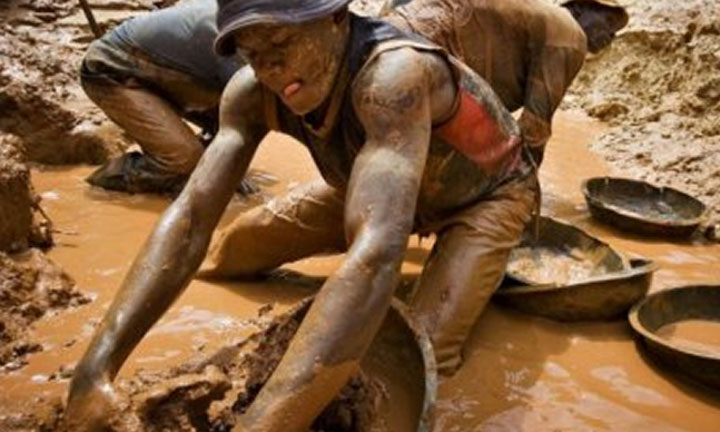
AMAI makadii? When my elder sister paid us a number of visits, I did not know that she was also checking the number of “idle” rooms we had in our house.
Of late, any child of theirs who gets expelled from high school due to misbehaviour or fails university is sent to stay with us as if we are a reformatory institution.
This is supposedly because our house has idle rooms. They phone and say “please monitor them closely and do not allow them to drink or bring their boyfriends over”.
Why must we attempt to control school drop-outs when their biological parents and teachers have failed? This affects my children as they now have to leave their bedrooms whenever we have visitors. The visitors’ bedrooms are occupied and there is a shortage of blankets. My kids no longer have study rooms.
Mai Chisamba, how on earth does a family decide to just give their children to another family who have their own kids to look after? I believe each family must look after their children and not burden someone else, especially in this harsh economic environment. I now need to buy more food.
The fact that we have two kids does not mean we are not capable of having more children of our own. Also, the fact that our house has many rooms does not mean we need more people living in it. Unfortunately, my sister does not realise this. My husband is also unhappy with this situation although he pretends not to be annoyed by it out of respect for me. What should I do amai?
I do not want to hurt my elder sisters.
Response
I am very well, thanks for asking. It is not fair to bring a child into the world and then fail to look after them. Parents are encouraged to be in their children’s lives at all costs. Good upbringing means putting them through school and protecting them from drugs and other harmful practices. Your sister should not use your home as a dumping ground.
If her children should come to your place, it should be after you both talk about it and agree on all other logistics. Instead of just pushing them to you, they should seek help for these kids.
I understand you when you talk about the harsh economic times the country and its people are going through. Your sister takes the blame for not helping out when her children are with you. In my view, you are partly to blame too because you pretend to her that it is fine because you do not want to upset her. You and your husband should sit down with your sister and tell her the truth.
You cannot pretend forever. You are complaining about several things, from food to blankets and living space. For now, take it easy, maybe your sister thinks you enjoy helping her by taking her children in. It is very noble to iron out your problems. You are family; you need each other. Blood will always be thicker than water. I would be happy to hear from you again, keep well.
***
Mother-in-law is out of control
I hope I find you well. I am a big fan of this column and your TV show, and I need your help. I am a lady aged 27 and I have two sons. The eldest is four and the other one is two-years-old. I am a single mother staying with my parents and my kids. My ex-mother-in-law always comes and takes my eldest son away without telling me, and this can last up to several days at times.
The last time she came and took him on Friday morning and he did not go to school. I was at work and the child was with my cousin.
I sent a message a day later requesting him back to attend a kids’ programme at church on Sunday. She came on Sunday morning and made a scene. She shouted at me saying: “Upfekedze moyo wako bhachi; mwana wedu toita zvatinoda naye!” Amai, I was so hurt.
I never refused for her to see her muzukuru, but the way she goes about it is not good. Last holiday I gave her my child and they went kumusha together. She stays kumusha. Presently, she is visiting her children and relatives in Harare. I have no idea where exactly she will be with my child. What can I do to stop this?
Response
Thank you for writing in, big fan. As a caring mother, you need to know the whereabouts of your children. You are no longer staying together with the father so you are more of a single parent. In your letter, you did not mention the whereabouts of your ex or even father-in-law. I do not know if he is part of the children’s life or not.
The truth is your ex-mother-in-law has crossed the line and she is off track. She has no legal right to boss you around and take your child willy-nilly. Moving with the child from place to place is not good for the child.
Taking him away and missing school is grossly irresponsible. Why can’t she ask for permission first? Why is she imposing herself? I urge you to talk to her and tell her that she should never do this behind your back. If she continues, report her to law enforcement agents. The child has rights too. If the father is not paying for the child’s welfare, take your issue to court.
Your mother-in-law should respect your parent’s home (as mukwasha) and also respect where her grandchildren are being looked after. Going to visit relatives with the kid does not mean much. I urge you to use the law to protect yourself and your children.
The court is better placed to decide when the kids can visit their father’s family. Do not let this woman stress you, move on and work for your family. You have what it takes, be strong. Always pray for your family; there is power in prayer. I wish you all the best.
***
Young marriage falling apart
I am a 21-year-old woman and I have a two-year-old son. I have been married for the past three years and my husband is 24. He is at a polytechnic in Harare and I reside outside of Harare.
We are still young and we are plagued by a lot of challenges. A lot has to do with finances as he is still yet to complete his tertiary education. He does not visit often. It is usually on weekends or maybe twice a month.
My real concern is that we are still a young couple and being apart is not good for us. He stays na sekuru kuHarare, but he does not even want me to visit, why? Ana sekuru often state that they do not mind. Surely he must see that it makes sense for us to be together. I do not know what to do or what to suspect. Please help.
Response
Your letter made me teary. You sound so lonely and low. When people are married it is best for them to stay together and strengthen the bond.
They may be a few disturbances caused by certain programmes and commitments now and again.
You are both in your early twenties and your marriage should be in its romantic stage. What I find unusual in your communication is that it is your husband who is giving excuses to avoid being with you. Why?
I always say when you write to my column please make sure you explain well so that I will be able to help. I can never work on assumptions.
My question is under which circumstances did you marry? It is not making sense that he marries you and tries to keep you away at all costs. You have a child, your husband should be part of this baby’s life too.
You complain that people say you are still young. Who is saying that and why? As far as I am concerned, you are both majors and parents of a lovely son.
Is your communication with your husband good? There is a contradiction here: vana sekuru are saying you can come to their house and visit your hubby who stays with them and he scrubs that away?
What is the reason for him to say no? I want to help you but in your letter, there are more questions than answers. I hope that you reach a compromise and start living as husband and wife. I would be happy to hear from you again. I wish you all the best.
◆ Write to: maichisamba@fbnet.co.zw, WhatsApp 0771415747













